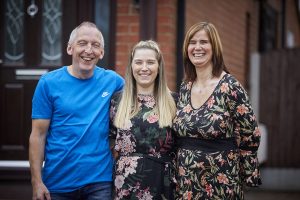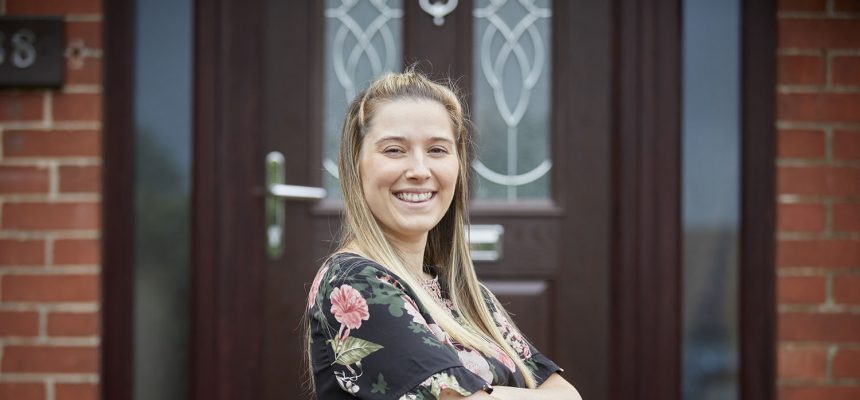Meet Becky, 29, from Oldham. Becky was a teenager when her own parents started fostering and now she is following in their footsteps, working as a short break carer to help foster families who look after children with disabilities.
In support of her parents’ decision to foster, Becky enrolled on a social care course at her local college to carry on her family’s legacy of making a difference in the community.
Becky made the move to apply to become a short break foster carer with Safehouses in 2013 when she was just 21-years-old.
“The idea of fostering always appealed to me considering my mum and dad’s commitment to give back to the community as foster carers themselves. I have seen many children and young people positively influenced by my parents from years-worth of care and support, that I thought maybe I could do the same.”

At the time of Becky’s successful application as a respite carer, there was a high demand from local foster families looking for additional help to support their foster children with physical and learning disabilities. Because of the need for more help, Becky decided to train in specialist respite care for children with a diverse range of needs.
“Providing specialist care was never something I thought I wanted to do until I spoke with my social worker about it. She told me local families needed short breaks or to better support their foster children, and I thought it would be a really nice opportunity to help those looking for extra help.”
For many foster families whose children have disabilities, there are occasions where parents may need a break, or when there is a family emergency, sickness, or simply an overwhelming period where additional help is needed. Short break carers can alleviate moments during the day, evenings or at weekends to offer more support.
Working with five different foster families, Becky’s level of respite care depends on the amount of help the family wants and the needs of the children. Some families have Becky look after their child or children with disabilities one day a week while parents do their food shopping or she might spend time with children working on their specific needs, such as non-verbal communication or behaviour management.
“Being a respite carer has given me the opportunity to make a huge positive difference to the lives of so many families. All parents need a break or help sometimes and for parents who have children with disabilities, having that extra support or knowing they can take a break can make such a difference.
“I think a lot of parents at first feel guilty for asking for support, but it shouldn’t be looked at as a bad thing. Having other carers around a child with a disability can be really impactful and can also positively impact the wellbeing of the family too.”
“I helped a family with one of their sons who was six-years-old and non-verbal. Over a few months, the little boy learnt how to communicate with me by saying yes, no, please and my name and it was so emotional. It really hit me then that this was something I was supposed to do – making a difference to families’ lives.”
With more children and young people in a need of a loving and safe home every day, fostering provides the job security and stability many young people are looking for. Although providing foster care expands beyond a traditional nine to five career, making a positive impact to a child’s life can be extremely rewarding, and from the comfort of your home.
“I think there’s a misconception about fostering and that it’s something older people do once their own children have flown the nest or once they’ve retired. I don’t think people realise just how many people are eligible to foster and that it’s such an inspiring and life-changing career opportunity, especially for those who may have transferrable skills like myself. It is also really reassuring to know my career as a foster carer isn’t at risk, especially since foster carers are needed right now more than ever before.”

